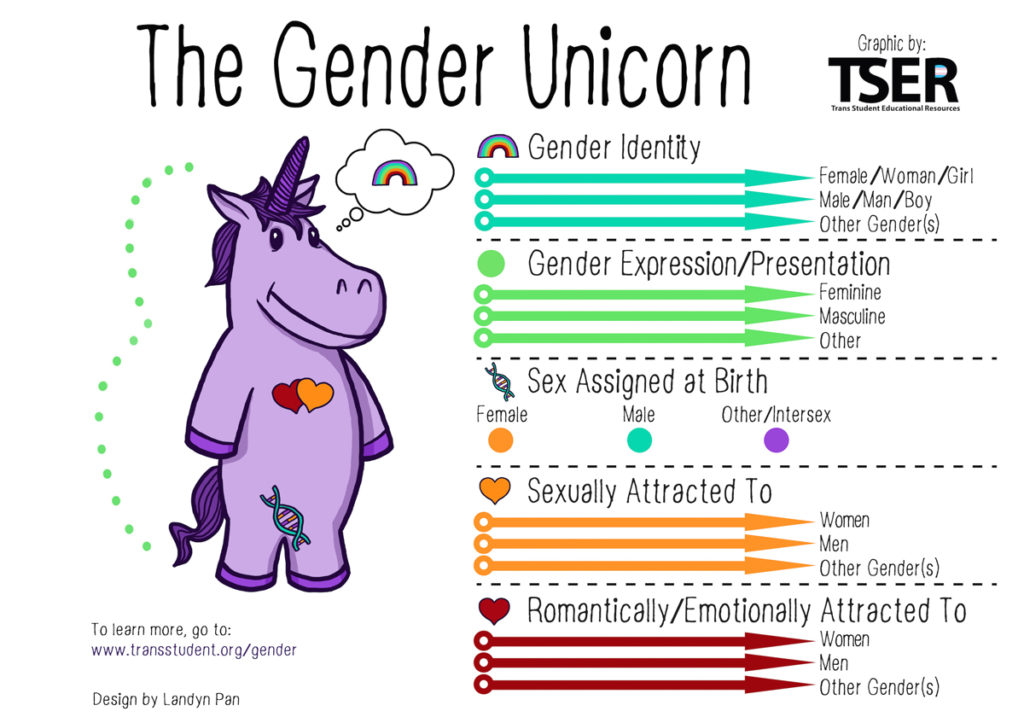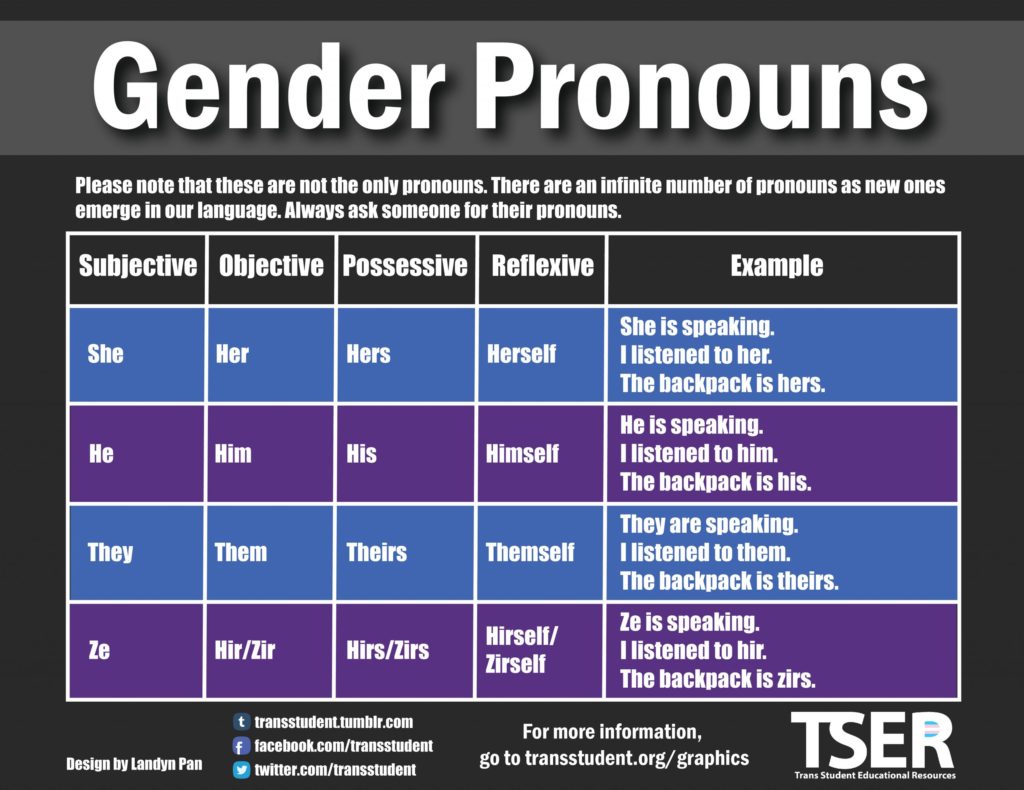Gender is a spectrum, not a binary.
The Difference between Sex and Gender
Sex: is assigned at birth and is based on a person’s biological characteristics. Sex does not determine gender.
Gender: the way a person identifies and presents themselves based on social norms, expectations and roles. Related terms: gender expression, gender identity.

Gender Identities and Sexual Orientations
Asexual: a person who experiences little or no sexual attraction to people of any gender.
Aromantic: a person who doesn’t get romantically attached to others, though may develop sexual attractions.
Bisexual: a person who is attracted to people of more than one gender.
Cisgender: a person whose gender identity aligns with the sex assigned to them at birth.
Demiboy/Demigirl: someone who partially identifies as a man/woman, and may or may not identify as another gender in addition.
Gay: a person who is attracted to people of the same gender.
Genderfluid: folxs whose gender changes over time.
Gender Queer: folxs who do not follow gender stereotypes based on the sex they were assigned at birth.
Intersex: a person who is born with reproductive or sexual anatomy that doesn’t fit the typical definitions of female or male bodies.
Lesbian: a woman who is attracted to women.
Non-Binary: folxs whose gender identity falls outside the man-woman binary.
Pansexual: a person who is attracted to other people regardless of gender.
Transgender: an umbrella term describing folxs whose sense of gender identity does not correspond with their birth sex.
- Trans Man: someone who was born female and transitions to male gender identity
- Trans Woman: someone who was born male and transitions to female gender identity
*Not all trans folxs transition. Don’t comment on how well a transperson ‘passes’, or ask about what surgeries they’ve had.
Two-Spirit: an umbrella term encompassing gender and sexual diversity in Indigenous communities; they often serve integral and important roles in their communities.
The 519s Glossary of Terms facilitating shared understandings around equity, diversity, inclusion and awareness.
Being an Ally
Heterosexual or “straight” allies support equal rights, gender equality, LGBTQ+ social movements, and challenge homophobia, transphobia, and biphobia. LGBTQ+ allies are critical to the success of the movement to accept and embrace sexual diversity.
- Educate yourself and be empathetic
- Uplift and celebrate LGTBQ+ stories
- Respect pronouns (introducing yourself with your pronouns will also create a safer space for others to do the same)
- Avoid deadnaming (using a transgender person’s birth name instead of their chosen name)
- Be aware of the language you use (for example, “before he transitioned…” instead of “when he was a girl…”)
- Speak up when you hear homophobic/transphobic comments
8 Ways to Be an Ally for the Trans Community, Pride
Terms are changing all the time. But the important thing to remember is to be respectful and to use terms that people prefer. Use terminology only as it is meant to be used. Using expressions like “that is so gay” only serves to stereotype what it means to be gay and is a form of discrimination.
Learn more at SEX & U
Getting Pronouns Right
- when you misuse their name or pronoun, correct yourself briefly, and move on
- when someone corrects you, thank them and move on
- when someone misuses a pronoun, correct them quickly
- when correcting yourself or being corrected, don’t apologize, as it puts their feelings aside and in the position of making you feel comfortable
- don’t make anyone feel they’re a burden when you’re struggling with using new pronouns
- when introducing yourself to someone new, make introducing your pronouns the norm, as it will create a safer environment for non-binary folxs to share theirs
Neo-Pronouns: other pronouns that are gender neutral and preferred by some non-binary and gender diverse persons. Examples include “ze/zir” and “ey/em.”

Laverne Cox Presents: ‘The T Word’ Full Documentary
This one-hour documentary will take viewers inside the lives of seven trans youths who may not have even felt safe sharing their lives with others.

